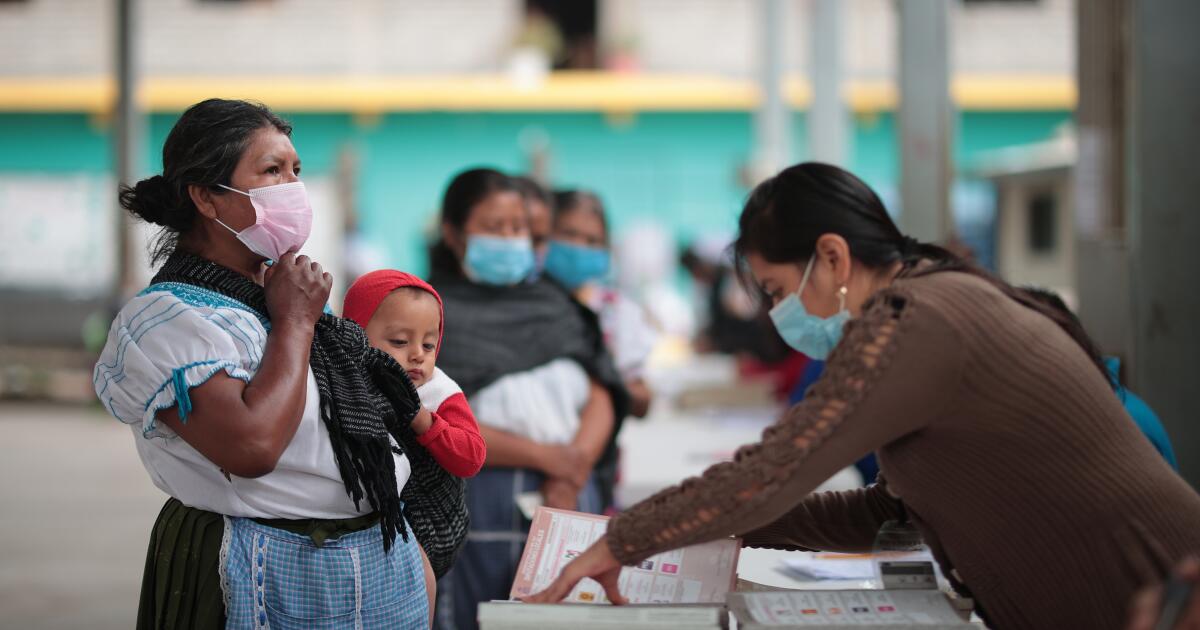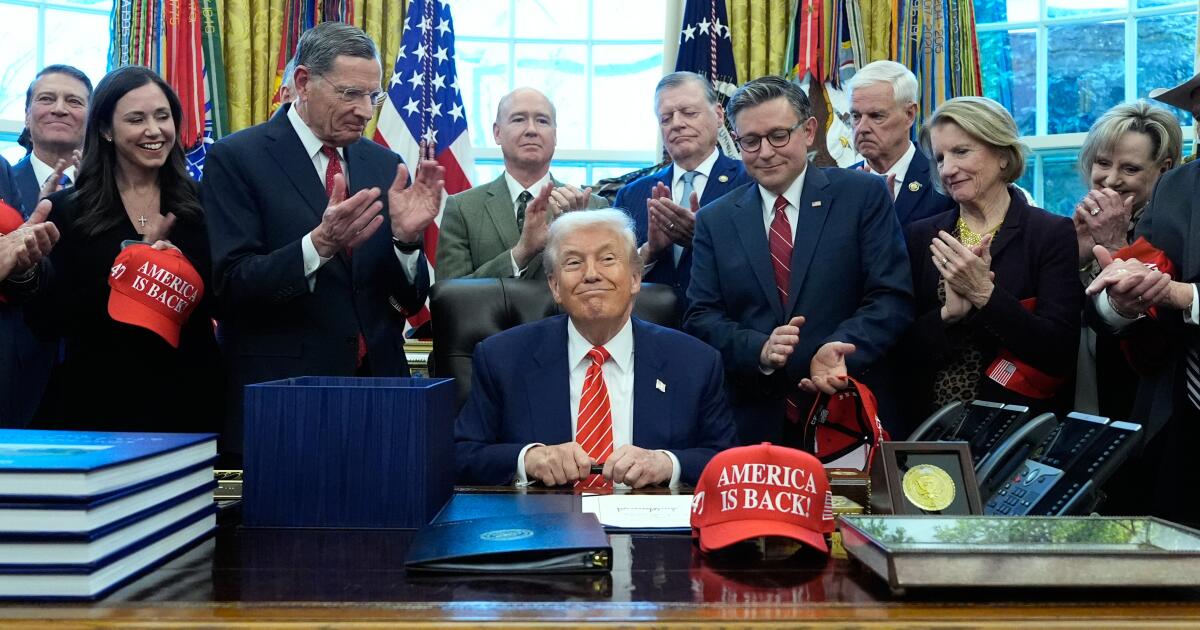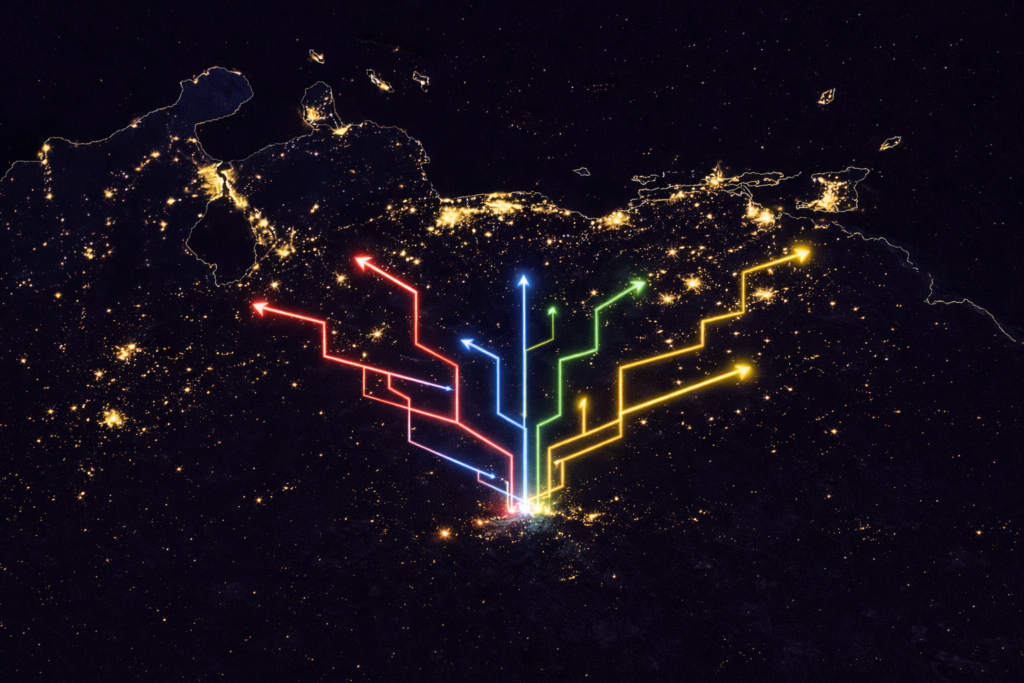Contributor: Mexico’s elections are a role model for the U.S.
Voting is fundamental to democracy, but here in the U.S. people don’t vote very much. In December, Miami held a runoff election for mayor, and all of 37,000 voters turned out. This was 2,000 fewer people than voted in comparable off-cycle elections in Apizaco, a small city in the mountains of central Mexico. It was no blip: The median turnout in U.S. city elections is 26% of the voting age population. In Mexico, by contrast, turnout rarely dips below 50%, and unglamorous small-town elections attract higher numbers, often more than 70% of the citizenry.
Nevertheless, the United States disdains Mexico as a pale shadow of its own democracy. Mexican elections are written off as corrupt, violent and unrepresentative. This was part-true for much of the last century, when versions of the Partido Revolucionario Institucional ruled without interruption for 71 years. Mexicans were “oriented” to vote by party managers, fined if they didn’t, violently dissuaded from voting for dissidents, disenfranchised with stuffed ballot boxes. Impressive turnouts were coerced. Even today, decades after the arrival of a competitive democracy, the violence persists. Thirty-four candidates were murdered in the 2024 elections.
Yet Mexicans also vote in impressive numbers because they have always cared profoundly about representative politics, and particularly at a local level. Many of those large turnouts in authoritarian Mexico were crowds of everyday people struggling to elect legitimate authorities in the teeth of a rigged system. Those struggles meant that sometimes they won.
Historical outcomes are revealing. More than 200 years of elections in Mexico have given results significantly more diverse and representative than those of the United States. In 2024 Mexicans elected the first female president in North American history, climate scientist Claudia Sheinbaum. In 1829 Mexicans elected the first Black president in North American history, mule driver Vicente Guerrero. In 1856 they elected lawyer Benito Juárez as the only Indigenous president in North American history.
The United States was born committed to rule by freely elected representatives. “We the people” is a good start to a piece of political writing and a good start to a country. When the French sociologist Aléxis de Tocqueville visited New England in the 1820s he was struck by how the citizens of small towns argued out their differences and came up with solutions together. The federal republic was a scaling up of those habits. The sum of those people’s beliefs, institutions and bloody-mindedness, Tocqueville wrote, was democracy in America.
The peoples of the United Mexican States, founded in 1824 after gaining independence from Spain, shared those ambitions. Mexico was likewise a federal republic, its rulers elected, its powers divided among executive, legislature and judiciary. As in the U.S., the female half of the population was excluded. But Mexico’s founders were ahead of ours in one sine qua non of genuine democracy: racial equality. In the Federalist Papers, Alexander Hamilton claimed that “to all general purposes we have uniformly been one people; each individual citizen everywhere enjoying the same national rights, privileges, and protection.” That was a self-evident untruth, because Black and Indigenous peoples were not included.
In Mexico, people of color had some standing from the founding onward. Mexican history has its own wrenching tragedies of race: the slavery of West Africans, the ethnocides of the North, the systematic impoverishment of peoples like the Maya of Chiapas, a eugenic hunger for white migration. But from the colonial outset Black people were acknowledged to be fully human, their enslavers’ abuses punished, their lynching unknown. Many Indigenous peoples preserved their language, lands and governments over centuries. Asians joined them; the first Japanese ambassador arrived in 1614. Mexico was the world’s first great melting pot.
So the founders of the United Mexican States made no formal distinction among the multitudes they contained. Their leaders in the War of Independence abolished slavery. Their post-independence congress mandated “the equality of civil rights to all free inhabitants of the empire, whatever their origin.” The 1824 Constitution extended the vote to every adult male. All would be free, all equal under law and all voters with a stake in the outcome.
In 1917 Mexicans passed the most progressive constitution in the world following their own revolution. It mandated an eight-hour working day, a minimum wage, equal salaries for men and women, and paid maternity leave. While women didn’t get the vote until the 1950s, they exercised notable power behind the scenes; even the most conservative parties had female organizers and supporters. Progressive social policies inspired leaders across the hemisphere, including Franklin D. Roosevelt.
Three core beliefs inspire Mexicans to vote. They believe that face-to-face freedom, embedded in the power and autonomy of the municipio libre, the free county, is sacrosanct. And they believe that to preserve communal freedom, whether from federal abuse or oligarchs, requires two things, sufragio efectivo y no reelección; in historian John Womack’s translation, “a real vote and no boss rule.”
Historically enough Mexicans — of all political stripes, from conservatives to anarchists — cared about those three beliefs to fight in elections tooth and nail.
Alongside the belief that voting is a duty comes clear-eyed rejection of boss rule. While Mexican Mayor Daleys are historically ubiquitous — they sparked the Mexican Revolution — there are none of the national dynasties that beset U.S. politics. The great dictator Porfirio Díaz left his ambitious nephew struggling to make army captain for eighteen years. Dynastic power befits monarchies, not democracies, and Mexicans know it.
Neither do Mexican politicians enjoy the unfettered power of their American counterparts to buy elections. Parties are publicly funded, under a system designed to promote fairness. Each party gets a certain amount from the state: 30% of that amount is the same for all, the remaining 70% proportional to their success in the previous elections. Private donations are transparent, regulated and capped at a very low level, on paper at least. The system unduly favors incumbents, and illegal, off-books funding is rife. Yet the need for sizable contributions to be covert keeps election results out of the hands of the likes of Elon Musk. A national watchdog and a diverse and competent press ensure it.
Sheinbaum spent $18 million winning her presidential election. In losing New York City’s mayoral election, Andrew Cuomo spent three times as much. A single oligarch, Michael Bloomberg, chipped in $13 million. Mexican elections are sometimes bought and sold, but never with the obscene unconcern prevalent in the U.S. since the Supreme Court’s Citizens United ruling.
Republics that endure rely on egalitarian beliefs, hard-nosed pragmatism, unwritten rules of decency and written rules of institutions — and unrelenting struggle against all who break those rules. Democracy relies on people of all races being recognized as fully human and guaranteed access to the ballot. It then relies on those people turning up to vote whenever given the chance. Mexicans have repeatedly demonstrated how deeply they know that across their history, against sometimes heavy odds. Their government documents come stamped with the revolutionary slogan sufragio efectivo y no reelección, a real vote and no boss rule, as a reminder. We could use one ourselves.
Paul Gillingham, a professor of history at Northwestern University, is the author of “Mexico: A 500-Year History.”



